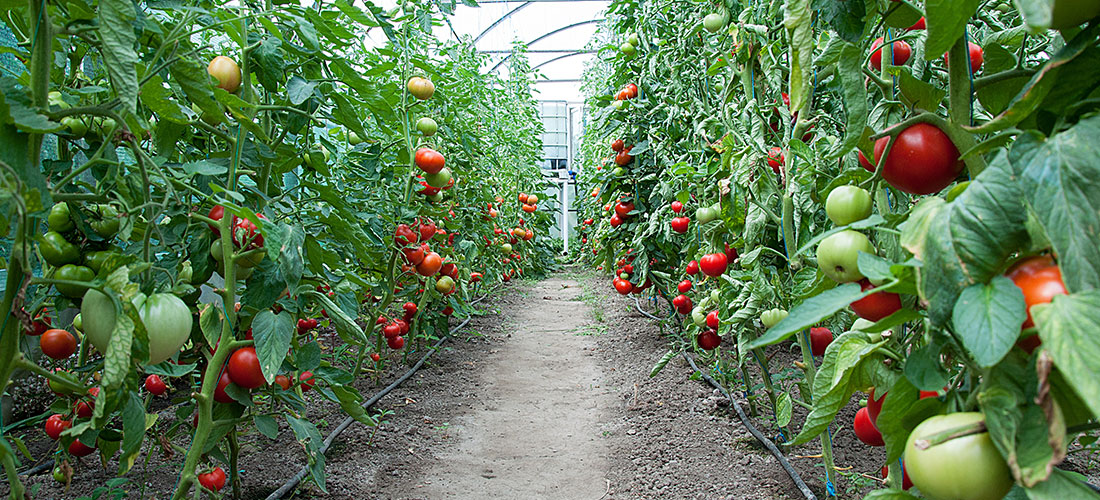After three years of EU trade sanctions, Russia has boosted their own greenhouse horticulture programs. Dutch growers are fearing the worst as the Russian Ministry of Agriculture says “Let them open their businesses here”.
Since 2014, Russia has slowly introduced European Union import sanctions of vegetables and fruits into their country. Growers in local Moscow markets are weary about importing goods from the EU. FD interviewed a local Azerbaijani fruit vendor is Moscow who said that Azerbaijan is not a member of the EU, and therefore he imports most of his produce from Azerbaijan. These sanctions were seen as Russia turning their head away from EU trade efforts and were met by similar steps taken by Brussels, as well as further sanctions due to the annexation of the Crimea and aggressive behaviour coming from Moscow on Eastern Ukraine.
As these sanctions were imposed, European growers and fruit producers saw a drop of around one sixth in sales by the export ban. If these bans are not lifted and negotiations are made, European growers and producers fear that there will be a complete loss of the Russia export market.
Russia has been looking for non-European alternatives to replenish the gap left by the bans. Food markets in Moscow import fruits such as plums and apples from Serbia, tomatoes from Turkey, figs from Israel and peaches from all over the former Soviet Union. Although resisting for non-European trade partners, Russia still imports pears from Spain and bell pepper from Bulgaria however fruit distributors in Moscow do not share their import information to the press.
The reason that Russia has not cut off all imports from the EU is that if they want to get particular products, then would have to go outside their regional neighbours like Argentina, South Africa and Australia, which would sky rocket import costs. However, Russia is viewed as being too self-confident when it comes to the sanctions, due to Russia’s Department of Horticulture’s Director, Pjotr Tsjekmarev. He released a statement saying “Sanctions or not, our fruit and vegetable cultivation will continue to evolve. The sanctions have convinced us that we need to increase our own production.”
Greenhouses
Russia depends heavily on greenhouse horticulture which takes a long time to create and implement into their current agriculture system. However, Tsjekmarev stated “the sector has developed rapidly. Thanks to Dutch technology, among other things, Russians are now able to build up to up to 200 hectares of greenhouses every year. The entire construction and its uses are now entirely in Russian hands: the gas supply, the construction the glass, the lamps. About 95% of all processes are done by Russian companies.
This construction is significantly boosted the enormous subsidies allocated to the horticulture industry by the Russian government. Near €1.5 billion has been given to construct 600 acres of greenhouses. “There are many companies that want to invest in the greenhouses,” says Tsjekmarev. “The government supports the maintenance of the greenhouses….”
Tsjekmarev estimates that Russia has cultivated over 100,000 tonnes of vegetables this year alone, which is a significant increase over 2016. By the end of 2018, the ministry of horticulture aims at increasing overall production to 200,000 tonnes for the year. Total consumer demand is 900,000 tonnes meaning there is still a long way to go until they achieve their goal.
The aim is to make Russia completely self-reliant with the future goal producing enough to export to the rest of the world. Current this happens with onions, carrots and beets.
Fruit Cultivation
Nowadays, Russia’s fruits come from Serbia, Azerbaijan, Belarus, Israel, Egypt and South Africa. Those country’s help Russia fulfil their demand after the sanctions applied from the EU reduced fruit imports. Russia has been focussing on fruit production in order to reduce the overall cost of fruit imports with Tsjekmarev declaring that 14,000 hectares of fruit are being planted each year, 80% of which are intensive fruit cultivation. By the end of this year the aim is to have 15,000 hectares or more.
Tsjekmarev continued to talk about the Dutch horticulture sector stating that the industry had very outdated greenhouses. He went on further to claim that the Russians have the surpassed the Dutch when it comes to greenhouse technology and in two to three years will no longer need the EU for greenhouse vegetables.
This claim naturally worried Dutch vegetable and fruit growers who depend on Russia as a source of export revenue. “They now have their own production and their own market, so of course they have cut down on the Dutch.”
There are risks for both parties as the more technologically advanced the Dutch become, the more able the Russians are to increase the size and efficiency of their operation. This poses a big challenge for the Dutch who pride themselves on the advancement in the horticulture sector. To create but not share the technology poses an ethical issue as this tech changes the lives of millions for the better, however as it spreads internationally more countries can become more self-reliant, similar to the Netherlands, decreasing the possibilities of trade, which is not good for the Dutch producers.
The article above poses a controversial situation where GreenTech considers itself as a neutral bystander. The flow of innovation technology across borders is something that can help us change the world and we hope that this tech will only better the lives of all who are involved.






